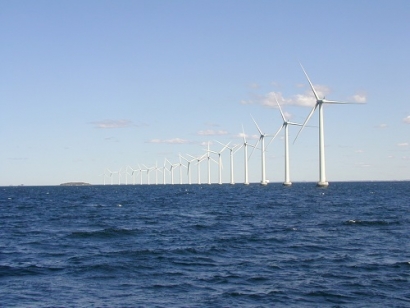
The annual Menino Survey of Mayors, released Tuesday by the Boston University Initiative on Cities, looks at a broad sweep of issues from housing to dealing with federal and state funding gaps.
On the issue of climate change, a new addition to the analysis, the survey found that 84 percent of US mayors believe the phenomena is the result of human activities, compared to 60 percent of the general public.
But the numbers differ considerably by party affiliation.
The survey found that while 95 percent of Democratic mayors hold this view, only 50 percent of Republican mayors agree.
Two-thirds of mayors say that cities should take action on climate change even if doing so requires financial costs.
But again, support for that assertion broke down along party lines. While nearly all Democratic mayors agreed with that statement, only 24 percent of Republicans agreed or strongly agreed.
Notably, the number of Republicans agreeing with this trade-off declined significantly from a similar query in the survey three years ago — with a 20 percentage point increase in those who oppose taking action.
Asked to rank their priorities in dealing with climate change, the majority of mayors cited reducing the number of vehicles on the road (36 percent), and upgrading city buildings and vehicles (31 percent).
Twenty-seven percent said they'd also try to increase the percentage of energy they use from renewable and "green" sources.
Nationally, opinions on climate change also proved highly polarized along geographic partisan lines.
Mayors in the South and West were more likely to oppose making fiscal sacrifices to address climate change relative to their counterparts in the Northeast and Midwest.
The highest level of support for aggressive action on climate change was among midwestern mayors: 89 percent of them agreed that cities should reduce the effects of climate change even if it comes at the expense of city financial resources.
This figure is almost 20 percentage points higher than any other region.
A strong majority of mayors agree that a serious effort toward locally combating climate change requires increasing residential density, updating building codes, updating municipal facilities and other capital, and replacing municipal vehicles with electrics/hybrids.
Just over one-half endorsed raising significant financial resources, making binding commitments to climate pacts, and inconveniencing some cars and drivers as integral to mitigating the impact of climate change.
A large majority of mayors rejected the notion that fighting climate change locally necessitates costly new regulations on the private sector; only 25 percent agreed that such programs were necessary to have a local impact.
In the first months of the Trump administration, some cities and mayors very publicly challenged the president’s agenda and promised to take steps to oppose it.
However, the nation's mayors now widely acknowledge they're somewhat limited in their ability to roll back federal policies with which they disagree.
But the bright spot has been in the area of climate change, an issue over which mayors claimed “a lot” of influence.
Sixty-three percent of Democrats, many of whom were in the process of responding to the administration’s withdrawal from the Paris Agreement, said that cities can do “a lot,” compared to 24 percent of Republicans.
In all, 115 mayors of cities with at least 75,000 residents answered the fourth annual survey named for Thomas Menino, a longtime Democratic mayor of Boston who founded the university program before his death in 2014.
The survey was sponsored in part by The Rockefeller Foundation and Citigroup.

